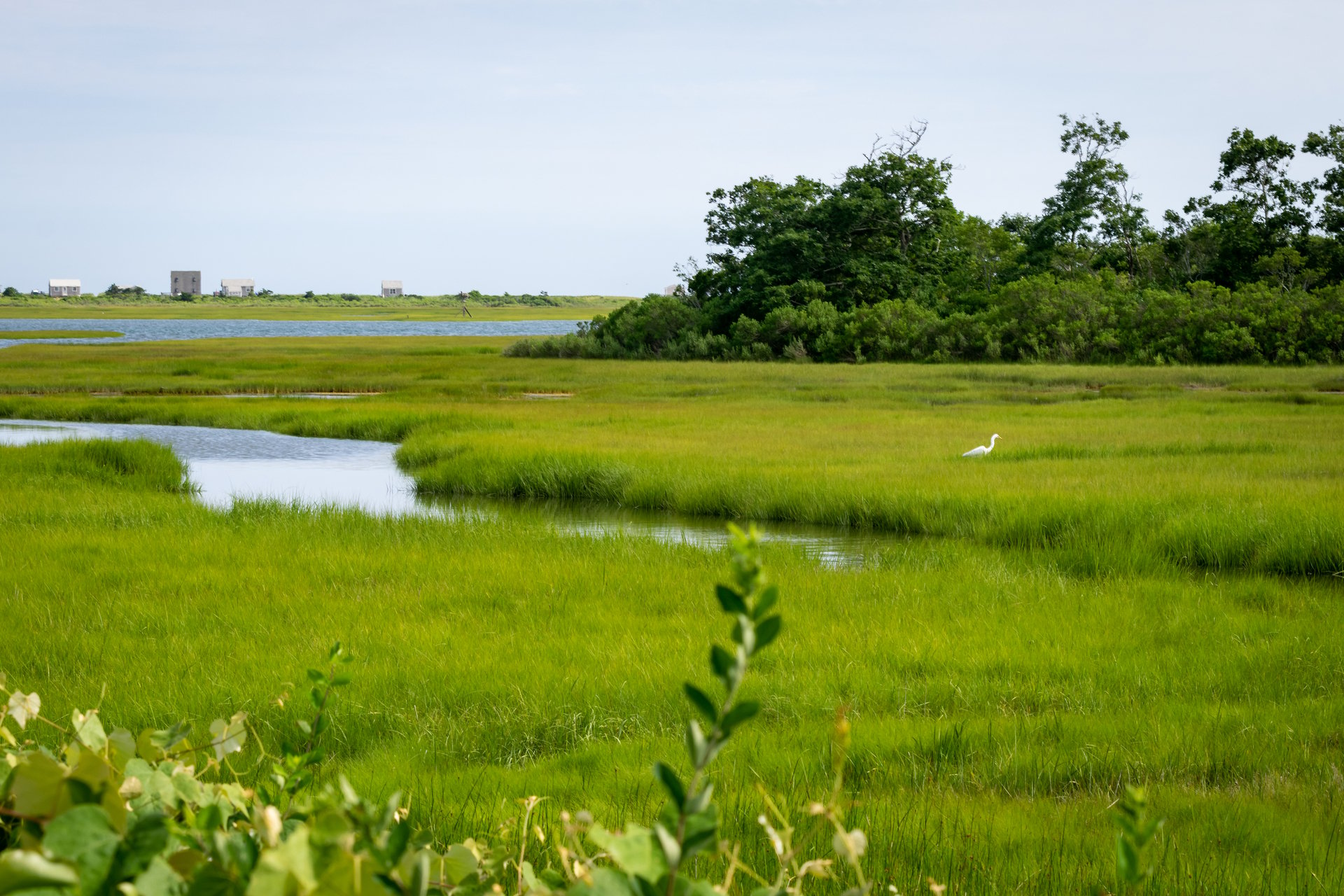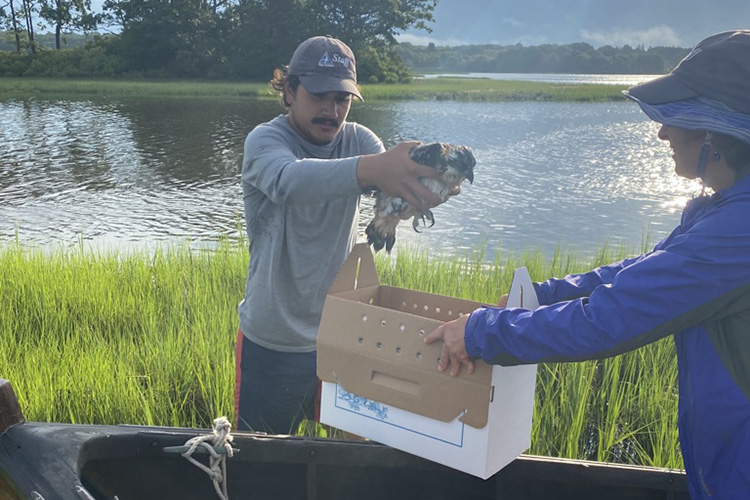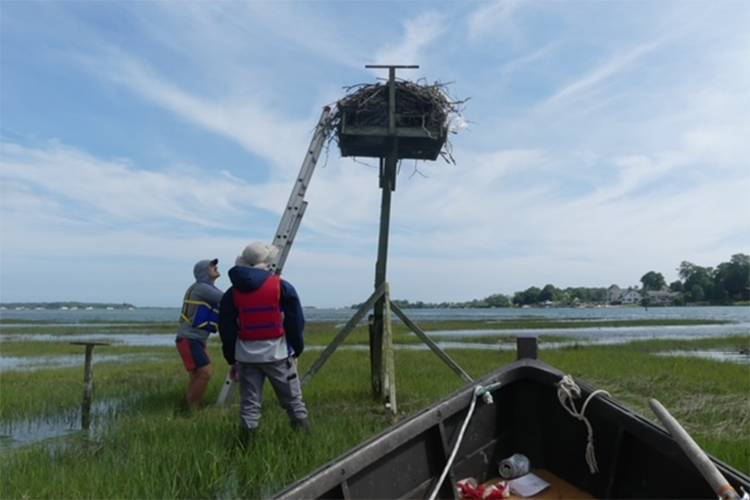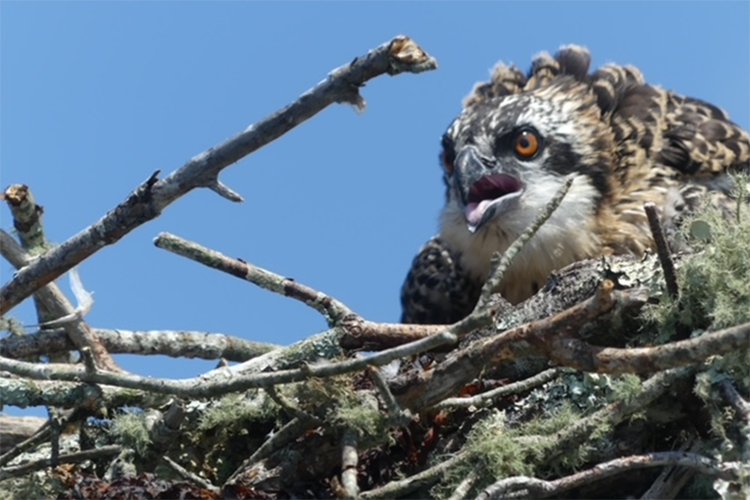Allens Pond Helps Restore Illinois Osprey Population
August 02, 2023
Since the insecticide DDT was banned in 1972, the population of breeding Osprey have made a stellar comeback in Massachusetts, in part thanks to the aid of nesting platforms and research efforts like our South Coast Osprey Project. However in Illinois, Osprey are still a state-listed threatened species. This year marked the fifth consecutive year that Mass Audubon has partnered with the University of Illinois at Springfield and the Illinois Department of Natural Resources to help in restoring the breeding osprey population in Illinois.
How to Jumpstart the Illinois Breeding Osprey Population
In 2013, Dr. Tih-Fen Ting of the University of Illinois created this project as an effort to translocate Osprey young from more robust populations to Illinois in order to jumpstart their breeding success in the region. On July 14, 2023, twelve strategically selected 6-week-old chicks were collected from the Westport River, half from the East Branch and half from the West Branch. The chicks were placed into individual cardboard pet carriers and shuttled to the New Bedford airport, where they were then flown by charter plane to Illinois, where they will grow up and hopefully rear chicks of their own once they reach breeding age.
Monitoring Local Nests with the Help of Volunteers
Data collection of the Westport River and Allens Pond Osprey populations began in April with regular monitoring of roughly 100 nests. Our goal was to determine how many eggs each breeding pair was laying, how many of those eggs successfully hatched, and the dates on which these chicks hatched. With this information, we were able to pick out 12 chicks from 12 different nests that would all be right around six weeks old on collection day, July 14th.
At 5:30 am on the morning of July 14, a coordinated team of volunteers, Dr. Ting, and Mass Audubon staff gathered at the Allens Pond Wildlife Sanctuary field station to assemble cardboard pet carriers and discuss the final game plan amidst an ongoing thunderstorm. Using two skiffs on each branch of the river to collect the chicks from their salt marsh-based nest platforms, Mass Audubon staff and Dr. Ting visited each of the 12 nests, placed them in their respective enclosures, and handed them off to volunteers on their boat to be shuttled to a nearby dock.
Once on the dock, their job was to relocate the chicks to a cool and quiet place where they could be held until it was time to take them to the field station and ultimately the plane to Illinois. Thanks to our committed volunteer effort, we were able to drop chicks off at four different docks to maximize time efficiency and minimize the time the osprey had to spend on a motorized skiff.
Welcome Home: The Ospreys Move in Illinois
Once in Illinois, the chicks are placed in artificial “hack boxes” where they are cared for and fed by diligent field staff. Although unable to fly until eight weeks old, at six weeks old, osprey chicks can feed themselves by tearing up fish provided to them without the assistance of their parents. This gives the chicks two weeks to associate their new situation with food and shelter. Once able to fly, the chicks will begin to teach themselves to fish but will have the option to return to the hacking station where there will always be enough food to supplement.
Come fall, the young adult Osprey will begin their first migration to South America. The goal of this project is that in 3-4 years, once these translocated Osprey reach reproductive age, they will return to Illinois to nest and breed. This avian translocation technique, known as “hacking,” has been used successfully to restore Bald Eagles, Peregrine Falcons, and Osprey in other regions of the world.
Why Monitoring Osprey Matters
We are very grateful for our caring volunteer team in Westport, MA, who help us monitor and collect Osprey chicks and are honored to contribute to Osprey restoration in Illinois. Thanks to our ongoing efforts with Mass Audubon's South East Osprey Monitoring Project, we are able to track the success of wildlife restoration efforts like these, and share our findings all over the world.






